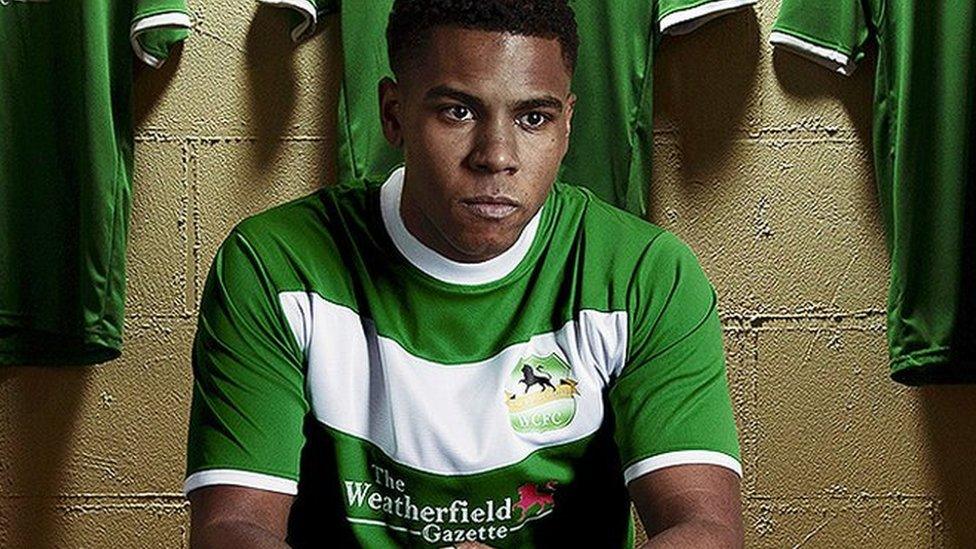Gay footballer calls for 'collaborative effort' to help players come out
- Published
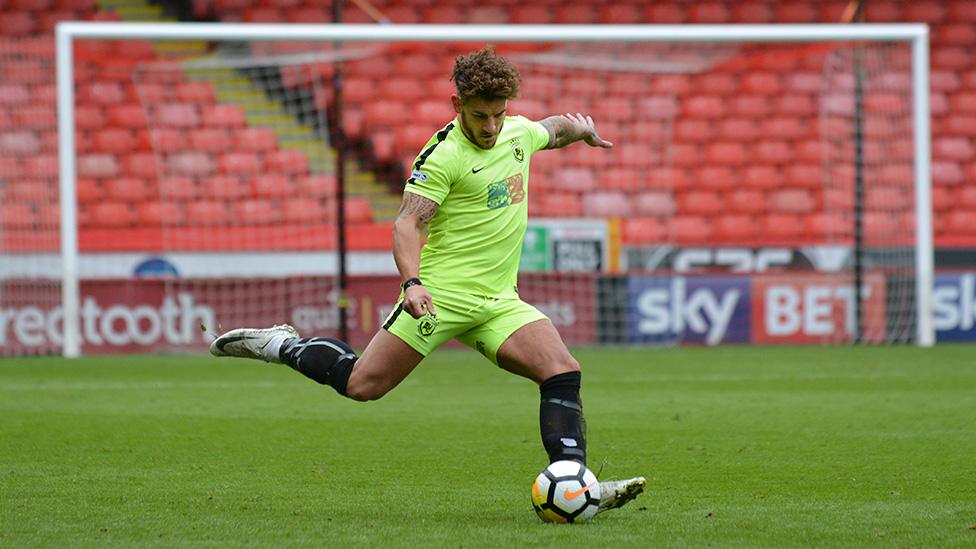
"I'm living proof that you can live the life you want without losing everything and everyone around you," said Matt Morton, gay player-manager for ninth-tier Thetford Town
An amateur footballer said there needs to be a "serious collaborative effort" to help make gay players feel more comfortable about coming out.
Matt Morton, player-manager for ninth-tier Thetford Town FC in Norfolk, opened up about his sexuality in 2019.
He said he had "nothing but a positive reaction" despite preparing himself for "abuse from opposing fans or players".
This month marked 30 years since Justin Fashanu became the first professional to talk openly about being gay.
Mr Morton, from Bury St Edmunds, said he realised he was gay in January 2018, at the age of 30.
He said he went from accepting it, to slowly telling friends and family, and eventually making it public in 2019.
The defender said although he had his own "different worries and concerns" about coming out, he had been supported by everyone around him.
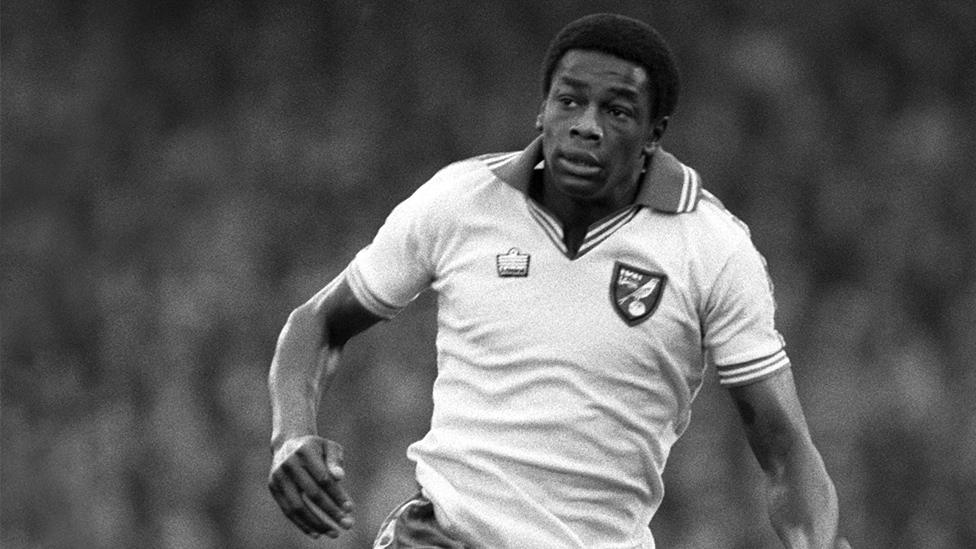
The late Norwich City player Justin Fashanu talked openly about being gay 30 years ago. He remains the only male footballer from the UK to reveal his sexuality while playing professionally in the top tiers
However, he said more had to be done to "address the things that stop [gay] players feeling confident and protected enough to come out and be themselves".
Adding for "serious and clear sanctions for fans, clubs and players who act inappropriately".
There needs to be some serious collaborative effort to make players feel more comfortable with coming out and being themselves.
Former Hull City Academy player Thomas Beattie has also called for a structured set of guidelines of what was going to be tolerated in the stands at football grounds.
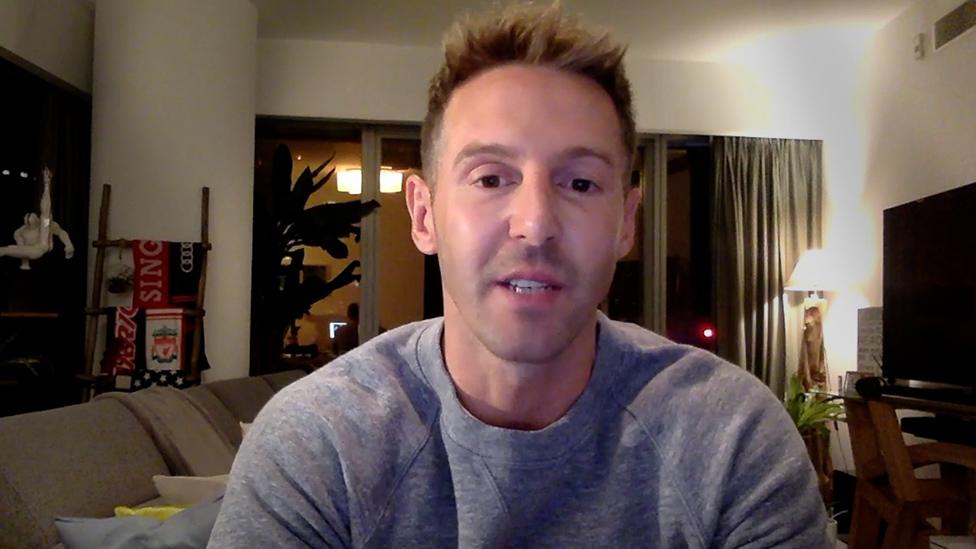
Former Hull City Academy player Thomas Beattie said a safe place needed to be created within the dressing room
"You can still freely go into a stadium and shout whatever homophobic slur you want and there's no repercussion for that," he said in a BBC East live stream discussing the issue.
He said as a "bare minimum" a safe place needed to be created within the dressing room "to make it a little bit more conducive for these players to come out and then start showing some visibility".

Find BBC News: East of England on Facebook, external, Instagram, external and Twitter, external. If you have a story suggestion email eastofenglandnews@bbc.co.uk
- Published26 July 2019
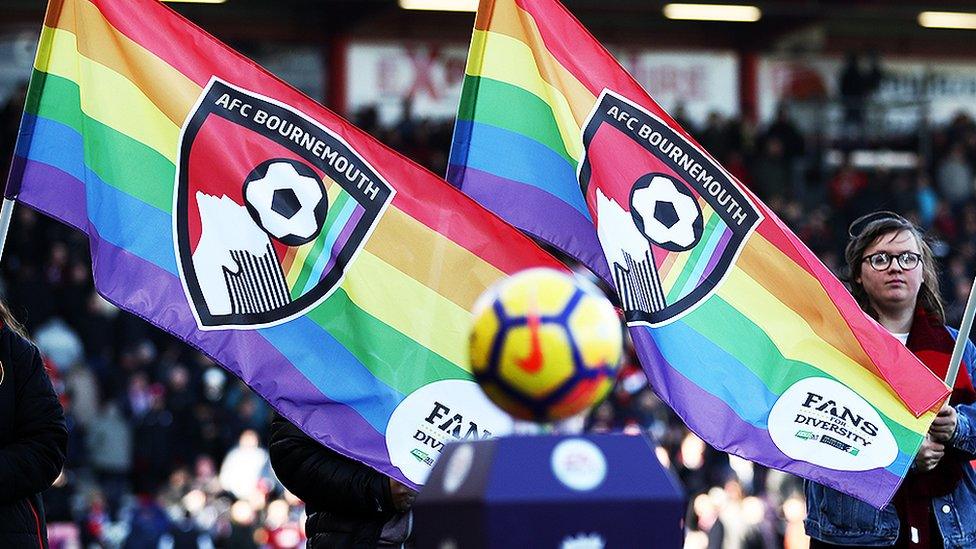
- Published25 June 2020
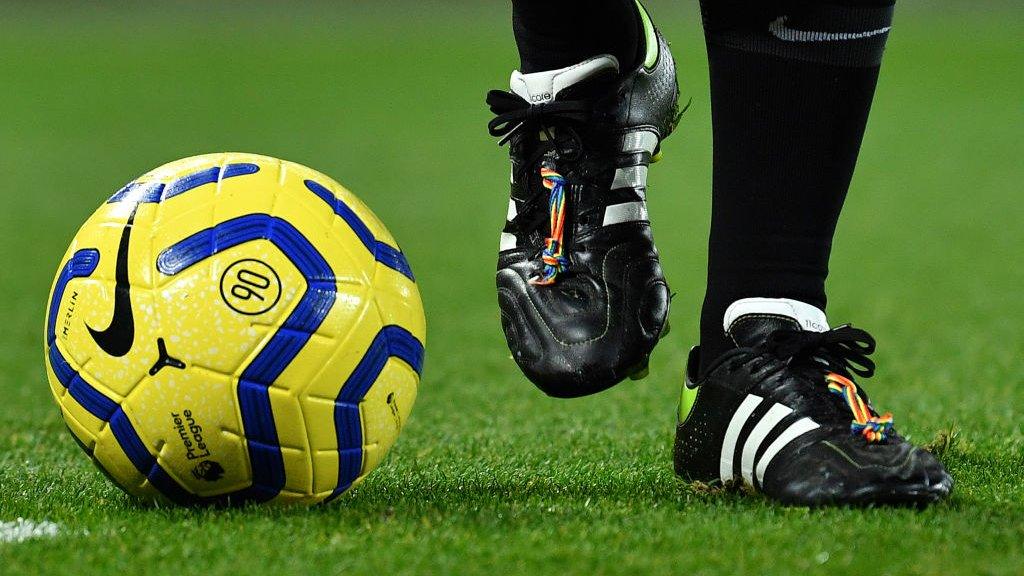
- Published10 March 2020
